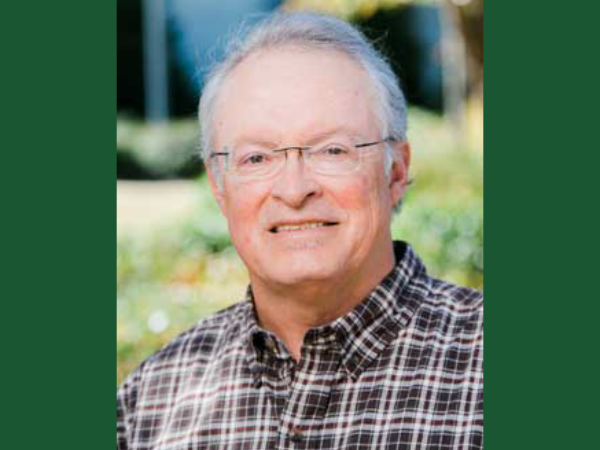 The past few years have been a time of rapid change. In 2019, I began coursework at the University of Alabama at Birmingham as a neuroscience major in one of the UAB Honors College’s specialized programs, the Science and Technology Honors Program–known to us Blazers as “SciTech.” About halfway through my second year (and in the midst of a pandemic), I realized that I had followed a path drawn by others. I was proficient in my work, but I could no longer see myself pursuing a career as a physician or researcher. As the gravity of the 2020 presidential election weighed on my heart, I saw a need for healing in America, but I couldn’t accomplish this on my current path. I knew that there was a daunting road ahead, one that no one in my family had traversed before. After many conversations with advisors, faculty, and loved ones, I decided to switch my studies to political science and follow my heart. I’ve always been one to dream big, but the vision I hold for society compelled me to make these dreams a reality.
The past few years have been a time of rapid change. In 2019, I began coursework at the University of Alabama at Birmingham as a neuroscience major in one of the UAB Honors College’s specialized programs, the Science and Technology Honors Program–known to us Blazers as “SciTech.” About halfway through my second year (and in the midst of a pandemic), I realized that I had followed a path drawn by others. I was proficient in my work, but I could no longer see myself pursuing a career as a physician or researcher. As the gravity of the 2020 presidential election weighed on my heart, I saw a need for healing in America, but I couldn’t accomplish this on my current path. I knew that there was a daunting road ahead, one that no one in my family had traversed before. After many conversations with advisors, faculty, and loved ones, I decided to switch my studies to political science and follow my heart. I’ve always been one to dream big, but the vision I hold for society compelled me to make these dreams a reality.
I envision a world with sustainable, vibrant, and inclusive cities that have thriving economies, strong public transportation options, and an overall high quality of life for residents. I want to have a hand in the policymaking areas of government to relieve structural inequities and promote sustainability for current and future generations. A top priority of mine is to improve connectivity and empower economic mobility, all while also reducing carbon emissions.
This vision led me to apply for the Marshall Scholarship, a program created by the British Parliament out of gratitude for American aid from the Marshall Plan in the early 1950s; this scholarship provides full funding to any university in the United Kingdom. The U.K. provides an environment that interacts with America and encompasses a broader scope of foreign and domestic affairs. Because of this, I knew that studying here would allow me to bring my unique skill set in intercultural communication, project management, and leadership to a nation grappling with effective public administration. As the U.K. experiences a national crisis over healthcare access, economic concerns from the Russian invasion of Ukraine, and trade challenges from the Brexit deal with the European Union, government officials at all levels must seek out new strategies. I knew that undertaking graduate-level studies in the U.K. will place me at the forefront of the world’s most critical issues, strengthen my skills, and broaden my understanding of urban centers and policymaking. After a rigorous selection process, I received a call in November from His Majesty’s General Counsel to the Southeast United States, in which she informed me that the Marshall Commission chose me to be their next Scholar!
My current endeavors testify to my ability to enhance relationships and policy. Serving in the Civic Design Team of the City of Birmingham Mayor’s Office, I have been an active change-maker in researching, planning, and implementing key policies for the Mayor’s Vision 2025 policy platform. I have been able to combine evidence-based policymaking with an inclusive design thinking methodology in numerous policy areas, including but not limited to transit-oriented development, urban resilience, sustainability, and economic development. In this role, I reside at the intersection of research, policymaking, social justice, and racial equity. My studies of American politics and political theory have amplified my ability to support historically underrepresented groups within Alabama via inclusive outreach, coalition building, and policy advocacy efforts.
Given the numerous challenges present in public transportation, infrastructure, housing, and education, public administrators must be well-equipped to meet the moment of our time, especially as the world’s urban population continues to expand. I seek to attain an MSc in International City Planning at University College London (UCL). This course combines the scientific rigor of theory, research, and practice with that of public administration as well as compares existing complexities between cities. The Guardian’s (2022) recent data shows that of the six million people with non-British nationality living in the U.K., 35 percent live in London. As “London’s Global University,” UCL promotes the value of the city’s global diversity and pioneers progressive action across disciplines. By choosing to pursue coursework at UCL, I will be able to interact with the epicenter of contemporary England—an evolving city with rich history and a complex legacy of empire.
Although there are many schools in America that have graduate city planning programs, none are as groundbreaking in practice as UCL’s International City Planning program. How cities are planned and the strategies administrators implement to spur development, connectivity, and economic growth have an impact on the livelihood of each nation’s economy (the first and fifth of the world). U.S. State Department data shows that every U.S. state has a connection or investment to a U.K. company and that over 1.5 million British citizens are employed by U.S. firms. Additionally, the City of London holds a wealth of knowledge on the successes and failures of diplomacy, as well as an extensive portfolio of bilateral relations with the United States. Residing here will be critical for my growth as a developer of public policy.
I am entirely grateful to UAB’s Department of Political Science and Public Administration, as well as the UAB National Alumni Society, UAB Sustainability, and the wonderful team in UAB’s National and International Fellowships and Scholarships Office. The mentors, advocates, and allies along the way have helped shaped me into a motivated public policy professional with a tenacity for social change. For those at the Marshall Commission, the Mayor’s Office, and everyone else who has loved and supported me, thanks for believing someone like me can change the world!
Banks Stamp is a 2023 Marshall Scholar, public policy professional, and Mr. UAB.


